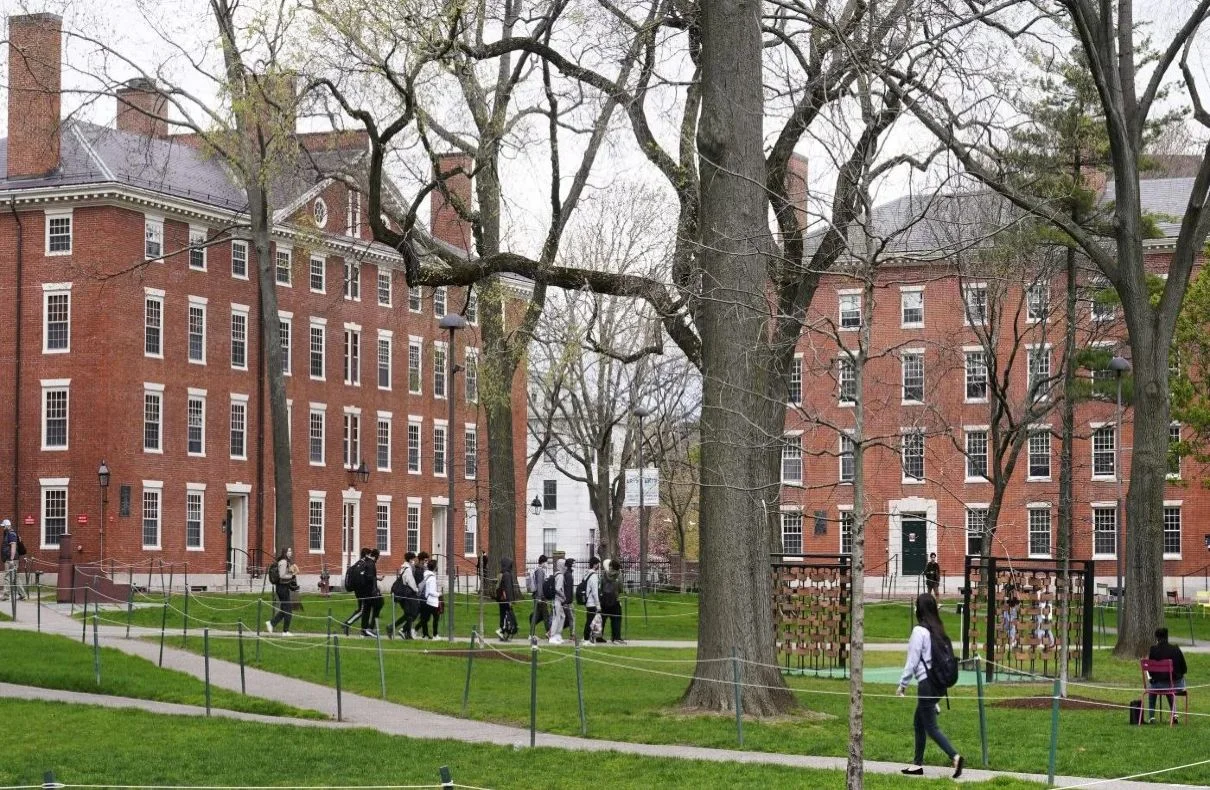
Antisemitism has become an alarming issue on college campuses across the United States, and Harvard University is now facing a lawsuit filed by Jewish students who claim that the institution has failed to address rampant antisemitism.
In October, a devastating attack carried out by Hamas on Israel resulted in the deaths of over 1,200 people, mainly civilians. This attack sparked intense debate and protests on college campuses, including Harvard University.
Following the attack, Jewish students at Harvard experienced a surge in antisemitic incidents, leading to heightened concerns about their safety and well-being. Pro-Hamas students and faculty members allegedly organized and participated in marches through the campus, shouting antisemitic slogans and calling for violence against Jews and Israel. The lawsuit filed by Jewish students claims that these incidents were not adequately addressed by the university, creating an environment of harassment and intimidation.
Trump’s crazy year: Criminal accusations prepared him for the White House
Seeking justice and protection, the Students Against Antisemitism, Inc. and other plaintiffs filed a lawsuit against Harvard University. The lawsuit accuses the institution of violating Jewish students’ civil rights and alleges that the university failed to take appropriate actions to address and prevent antisemitic behavior. The plaintiffs argue that Harvard has a responsibility to protect its Jewish students and must address the deep-rooted antisemitism problem on campus.
The rise of antisemitism on college campuses has reignited a debate about the boundaries of free speech and the responsibility of universities to ensure campus safety. College leaders, including those from Harvard, have struggled to define the line where political speech crosses into harassment and discrimination. This challenge has raised concerns among Jewish and Arab students who feel that their schools are not doing enough to protect them.
The issue of campus antisemitism gained national attention when the presidents of Harvard, the University of Pennsylvania, and the Massachusetts Institute of Technology (MIT) testified at a congressional hearing. Republican lawmakers questioned the presidents about whether calls for the genocide of Jews would violate campus policies. The presidents’ responses, which were seen as evasive, sparked backlash from donors and alumni and resulted in the resignation of President Claudine Gay at Harvard.
The U.S. Department of Education has repeatedly emphasized the importance of combating antisemitism and Islamophobia on college campuses. Education Secretary Miguel Cardona has stated that the Office for Civil Rights takes these cases seriously and has opened over 40 investigations at colleges and universities in response to complaints of antisemitism and Islamophobia since the Hamas attack. Harvard, Stanford, and MIT are among the institutions under investigation.
Texas Wildfires: The Unprecedented Smokehouse Creek Fire in the Texas Panhandle
In response to the lawsuit and the broader issue of antisemitism on campus, Harvard University has taken steps to address the problem. The university has initiated an examination of how antisemitism manifests within the community and is developing a comprehensive plan to combat it. Additionally, Harvard is implementing educational programs for students and faculty to raise awareness about antisemitism. They have also established avenues for reporting incidents of bias, including an anonymous hotline.
The rise of antisemitism on college campuses, exemplified by the recent events at Harvard University, highlights the urgent need for universities to address and combat this issue. The lawsuit filed by Jewish students against Harvard exemplifies the determination to hold institutions accountable for ensuring the safety and well-being of all students. As debates surrounding free speech and campus safety continue, it is crucial for universities to take proactive measures to create an inclusive and respectful environment for all students, regardless of their religious or ethnic background.
